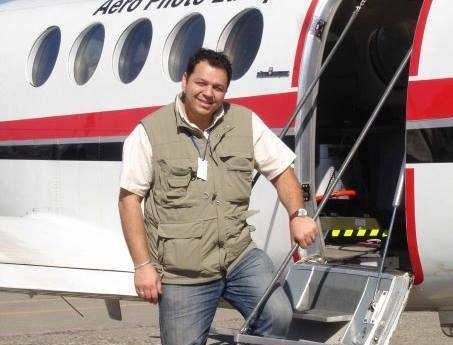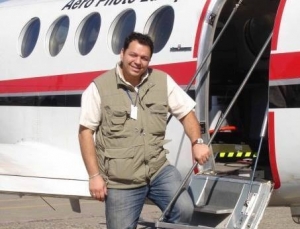Geomorphologist: Consequences of Ignoring the Risks
Around a million cubic meters of solid mass (in an area 3.8km in length) broke away from a mountainside above Akhaldaba, 10 km outside Tbilisi, to create a landslide that was the first step in the tragic deaths of around 25 people and hundreds of animals. The debris first blocked the road that connected Georgia’s capital Tbilisi to nearby Tskneti, Betania, Manglisi, and Pantiani villages, before crashing down into the River Vere.
Georgia Today met exclusively for a quick chat with extremely busy Geomorphologist George Gotsiridze who is, at present and in the aftermath of the landslide and flood, running from meeting to TV interview and back again.
Q: Tell us a little about yourself.
A: I am Geomorphologist, Geo-ecologist, GIS (Geographic Information System) and Remote Sensing Specialist. I principally work in Consulting Center GeoGraphic, founded by me and my partners in 1998. The company is composed of geographers, urbanists, architects, foresters, engineers, surveyors, photogrammetrists, environmentalists, programmers and GIS specialists. I spend most of my time dealing with project management and I’m actively involved in mountain development and disaster management issues. As you can imagine, I’ve been busier than usual this week!
Q: On that topic, what is your perspective on the flood? Is nature more to blame or is Man more at fault in this case?
A: I’d say both. Rivers by nature are active and Man has been ignoring that fact since the development of the city [Tbilisi] first really got going in this area from the mid twentieth century.
Q: Tell us more about the River Vere and what caused the flood on June 13.
A: The water catchment area of the River Vere is huge (up to the 300 sq.km) and almost equal to the size of Tbilisi. So, it means that a lot of water is generated in semi-dry small river beds which are connected to the main Vere riverbed. Continuous heavy rainstorms over several hours, together with unstable landslide slopes (with slope denudation materials), such as those in Akhaldaba, are enough to create a strong mudflow which, last weekend, rapidly directed into the city and through the first artificial tunnel build in the 1950s. Tree trunks and mud picked up by debris came down from the recent Akhaldaba landslide and blocked that first tunnel entrance, so resulting in the first flooding on Svanidze street. The same flow and blockage by the build-up of debris happened at consequent tunnels all the way down to the end of the Vere river where it meets the Mtkvari riverbed.
Q: What (if anything) could have been done to prevent the Vere tragedy?
A: Unfortunately, Georgia is lacking in Early Warning Systems and with regards the concept of spatial development of the river Vere, the cluster of buildings there has been historically developed in an incorrect way since Soviet times. A Disaster Management program should be developed urgently.
Q: What can be done to stop this kind of thing happening again (both on the governmental and citizen sides)?
A: A number of things, actually. The development of Alarm, Early Warning and Monitoring Systems, a resettlement action plan, and proper spatial development and implementation of a curtain development program in accordance with the city development strategy.
Q: What’s been keeping you busy in the days following the Vere flood?
A: Observation, measurements, and consulting!
Gotsiridze, along with Italian geologist Claudio Margottini and other local experts are working to complete a review of the landslide-affected and flooded area, after which they will offer recommendations to the Georgian Government to prevent a similar disaster happening again in future.
Italian geologist Claudio Margottini said: “Now it is necessary to explore the area because the situation is still very dangerous. If rainfall starts there again there is a big chance another landslide could happen.”
Temur Gaprindashvili, Head of the National Environment Agency’s Geology Department said the Vere River was gradually receding and returning to its natural riverbed, however “there is still high risk if it rains again and the river swells.”
Katie Ruth Davies












